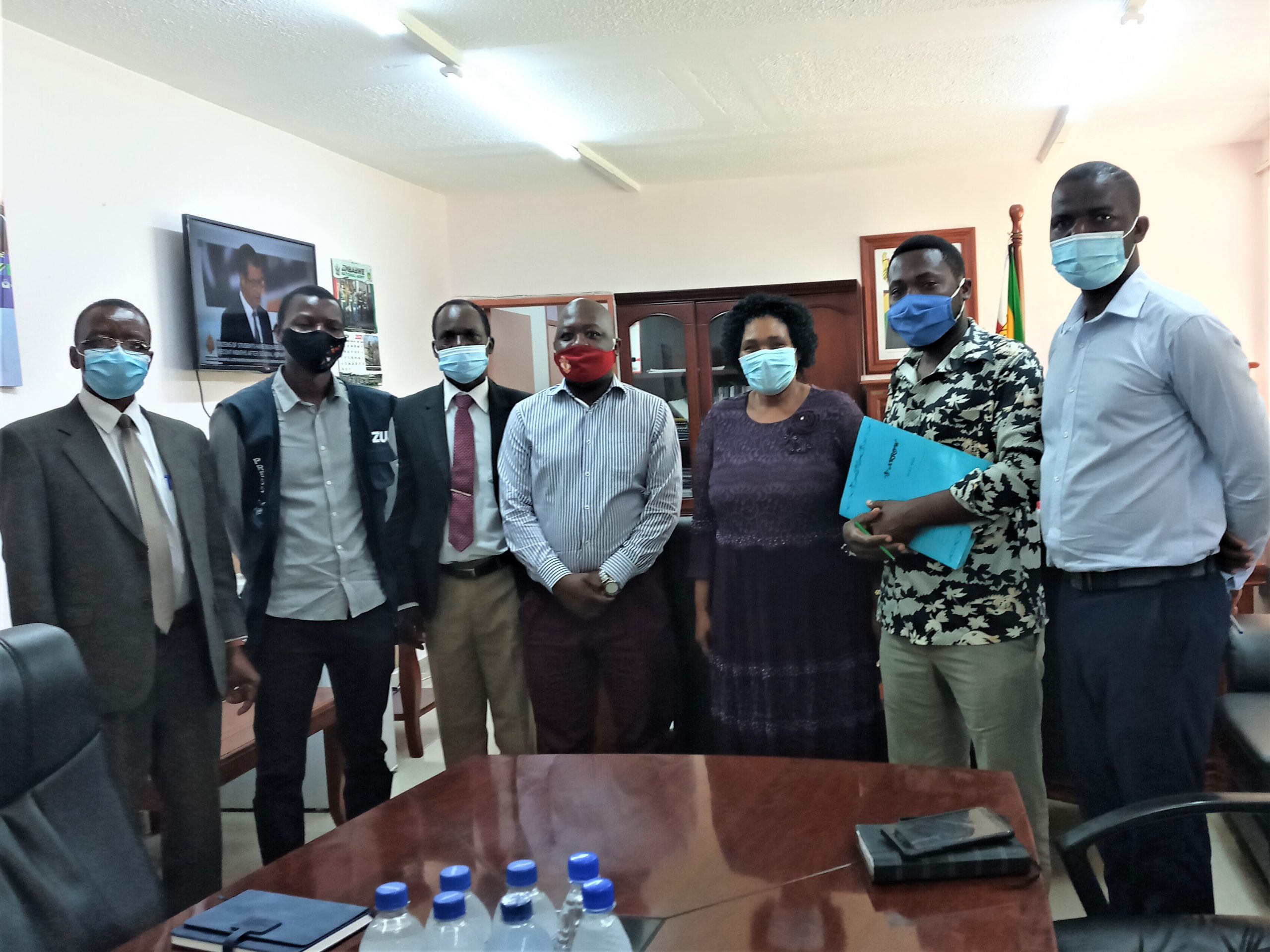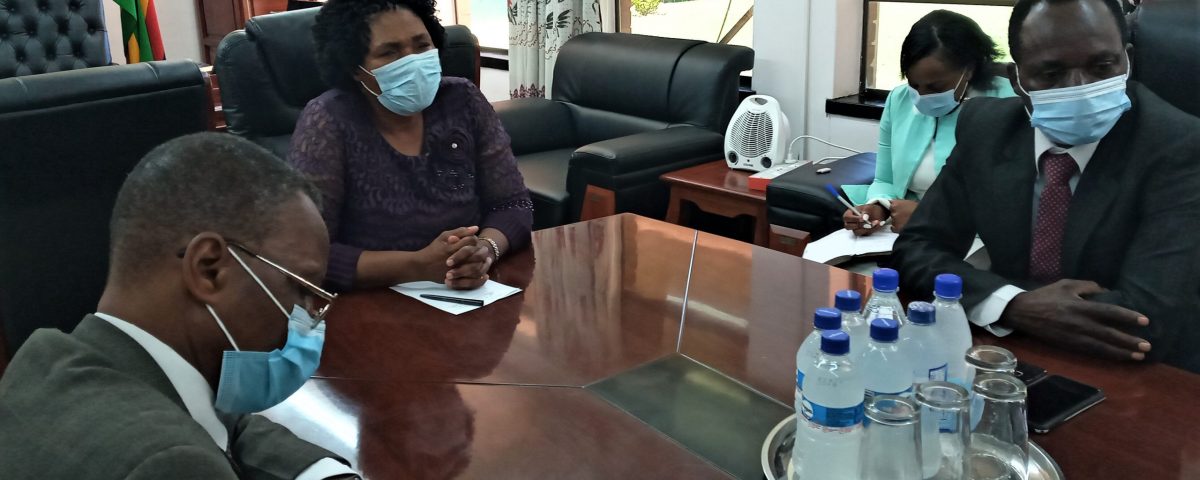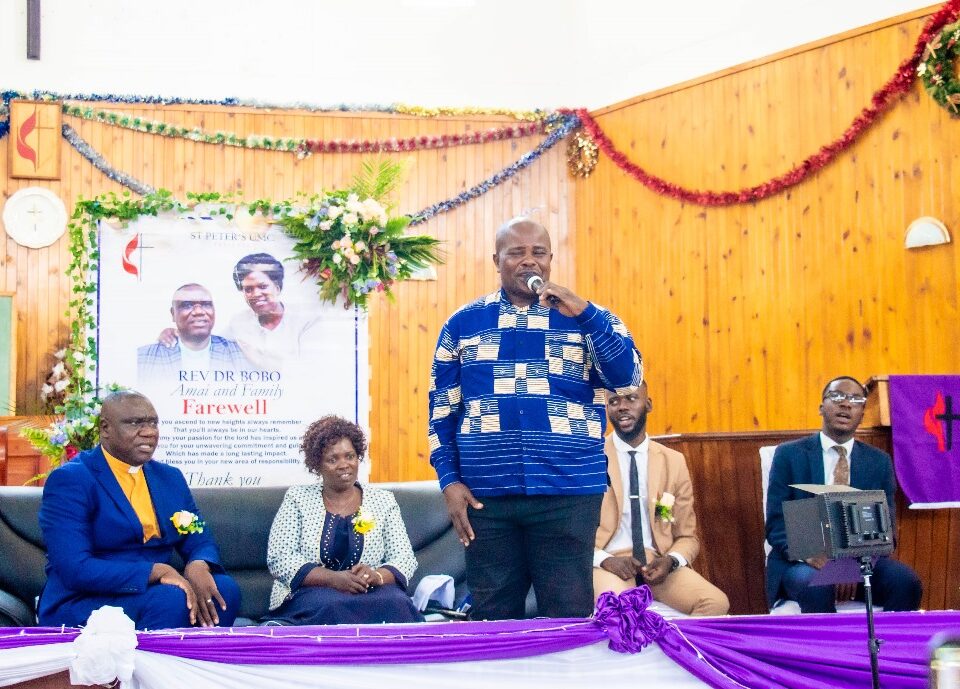
Minister Matsikenyeri pledges to promote media freedom and access to information
March 22, 2021
New ZPCS boss encourages provincial heads to be more business minded in their operations
March 25, 2021‘Devolution Provincial Councils expected to be functional by year end’

The new Minister of State for Manicaland Provincial Affairs and Devolution Nokhuthula Matsikenyeri (centre) with the Manicaland Provincial Coordinator Edgar Seenza (left) and the deputy director in the Office of the Minister of State for Manicaland Provincial Affairs and Devolution Lucky Bhasopo during a meeting with journalists last week Tuesday.
Ngoni Dapira
THE provincial councils for the anticipated devolved and decentralized system of governance in the country are expected to be functional by end of the year, the Manicaland provincial development coordinator (PDC) Edgar Seenza has revealed.
Seenza said this during a recently held meeting with executive members of the Manicaland chapter of the Zimbabwe Union of Journalists (ZUJ), Mutare Press Club and Media Institute of Southern Africa (MISA) Zimbabwe that was hosted by the new Minister of State for Manicaland Provincial Affairs and Devolution Nokhuthula Matsikenyeri.
Briefing Minister Matsikenyeri on latest developments with regards to devolution in the province, the PDC said already they have been tasked to look for office space for a boardroom for the provincial council and office space for its secretariat. Adding that training programmes and recruitment of staff for the devolution matrix had already begun.
According to the Zimbabwe Constitution devolution will entail the transfer of political power, policy making decisions, resource raising and distribution, as well as administrative and governance responsibilities through three tiers of government. These include, the national government, provincial and metropolitan councils and local authorities (which include urban councils and rural councils).
“Our Ministry (Ministry of Local Government, Public Works and National Housing) has said before end of the year provincial councils are expected to be functional and we have been asked to start communicating with them (provincial councilors) and we are already giving them information through virtual meetings so that they start learning about their mandate and provincial development plans.”
He said the Office of the President and Cabinet in conjunction with the Ministry of Finance and Economic Development have already started rolling out the devolution consultation programme for the elected provincial councilors. “We have been given dates when a team will come and lead us on how to develop our provincial strategic plan, which will determine the provincial integrated development plan, then later inform the provincial integrated development programme. Once in place we will share with everyone the provincial integrated devolution programme. It is requirement to consult all stakeholders on that and we will do so accordingly because devolution is all about equitable allocation of national resources and the participation of local communities in the determination of development priorities within their areas,” said Seenza.
Under a devolved and decentralized system, provincial councils will serve as the second tier of Government. The provincial councilors were elected during the 2018 harmonised elections by a system of proportional representation and each province will have 10 provincial councilors. In Manicaland all the 10 provincial council members came from Zanu-PF, namely Cecilia Maradzamunda (F), Gutu Moses Nyamuri (M), Happiness Nyakuedzwa (F), David Chamusaizira (M), Beauty Muzhingi (F), Tawanda Mukodza (M), Chishamiso Muradzikwa (F), Maxwell Kuhudzai (M), Evelyn Mtetwa (F) and Tedious Nyikayaramba (M).
According to section 268 on appointment of Provincial Councilors,”Elections to provincial councils must be conducted in accordance with the Electoral Law, which must ensure that the councillors referred to in subsection (1)(f) are elected under a party-list system of proportional representation—(a) which is based on the votes cast for candidates representing political parties in the province concerned in the general election for Members of the National Assembly; and (b) In which male and female candidates are listed alternately, every list being headed by a female candidate.”
Seenza said an Act of Parliament must provide appropriate mechanisms and procedures to facilitate coordination between central government, provincial and metropolitan councils and local authorities, citing that Government is in the process of finalizing the amendment of the Provincial Councils and Administration Act.
He said the moment the local authorities are the only ones that are receiving funds for devolution. Seenza said the funds come with specific guidelines, of which Government instructed the funds to be solely for capital projects and income generating projects that are expected to benefit the community in terms of livelihoods.
“So we have been asked to start preparing for provincial councils. But at the moment we will have to establish offices for the provincial council. The department of Public Works is now busy running around. The chamber for meetings has to accommodate 10 provincial councilors, 14 chairpersons of the National Development Strategy thematic committees, then the secretariat and OPC. So the boardroom should be able to accommodate about 30 people at least.”
Seenza said devolution will also extend decentralization which is already being prescribed. He however said a lot of manpower will be required to successfully run a decentralized and devolved State.
Seenza added that unlike past government systems, the technical committee, called the provincial development committee, will now comprise of people from the private sector and not just government technocrats. “However at the moment this is still theoretical until the Act is enacted…In real sense devolution is a process which is starting but not yet there. It has its own pressures in terms of accommodation, office space which again has not been done but we need to move faster,” said Seenza.
Minister Matsikenyeri who was sworn in February said she was still familiarizing with all stakeholders and but wants to hit the ground running and see through developmental concerns. She said devolution will be an opportunity to grow local businesses and increase the gross domestic product of the province through value addition.


